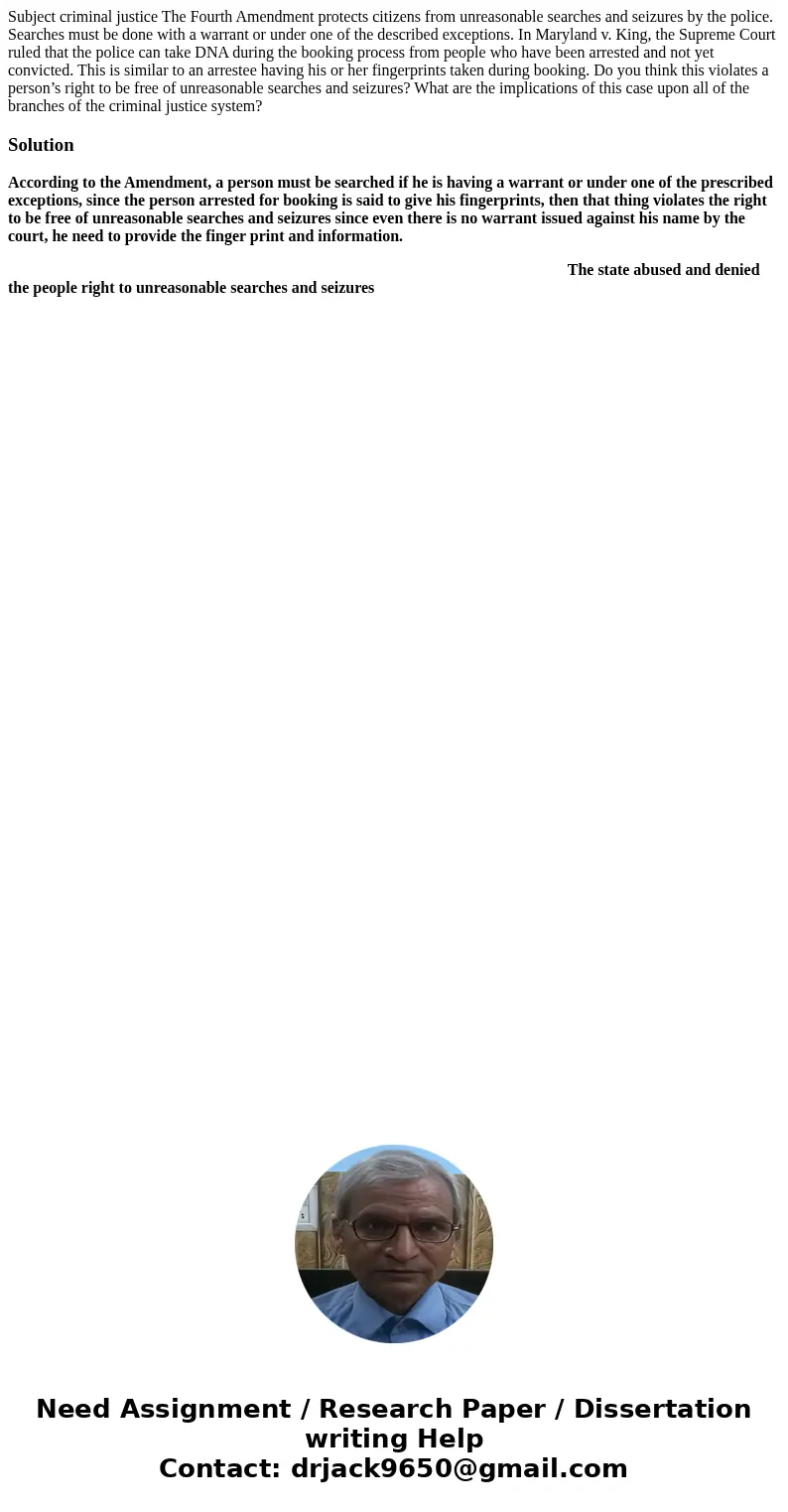Subject criminal justice The Fourth Amendment protects citiz
Subject criminal justice The Fourth Amendment protects citizens from unreasonable searches and seizures by the police. Searches must be done with a warrant or under one of the described exceptions. In Maryland v. King, the Supreme Court ruled that the police can take DNA during the booking process from people who have been arrested and not yet convicted. This is similar to an arrestee having his or her fingerprints taken during booking. Do you think this violates a person’s right to be free of unreasonable searches and seizures? What are the implications of this case upon all of the branches of the criminal justice system?
Solution
According to the Amendment, a person must be searched if he is having a warrant or under one of the prescribed exceptions, since the person arrested for booking is said to give his fingerprints, then that thing violates the right to be free of unreasonable searches and seizures since even there is no warrant issued against his name by the court, he need to provide the finger print and information.
The state abused and denied the people right to unreasonable searches and seizures

 Homework Sourse
Homework Sourse